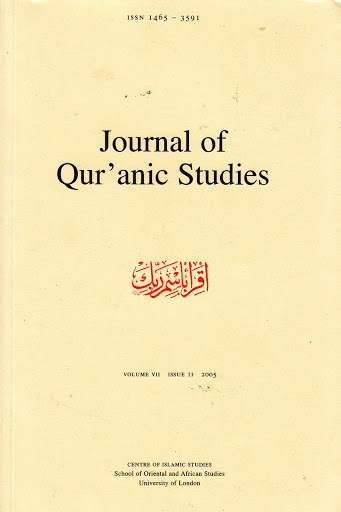The Taʾwīlāt ahl al-sunna of al-Māturīdī, an exegete contemporaneous with al-Ṭabarī, is now available in three editions; we have no excuse for not consulting it. But the issue is not merely a matter of inspecting yet another of the Qur'an commentaries available. Rather, as will become apparent in this article, we have in the work of al-Māturīdī a fundamental early work that will revolutionise how we understand the development of the genre of tafsīr in medieval Islam. Recognising the central significance of the Taʾwīlāt will allow us to incorporate it as a major source alongside al-Ṭabarī, and will have profound implications for how we have been studying al-Ṭabarī and tafsīr as a whole. Tafsīr seen through the Taʾwīlāt al-Qurʾān looks different; it was pursued differently and speaks to a manner of doing tafsīr that al-Ṭabarī pretended did not exist. Al-Ṭabarī’s work must be read alongside al-Māturīdī’s: only then will we be able to fully grasp the significance of what al-Ṭabarī achieved. When read in this light, al-Ṭabarī is shown to be far more ideological, far more radical in his work, than we have hitherto realised. He was not gathering the Sunnī collective memory so much as reshaping it. Therefore, his work should be regarded as a representative of one particular type of tafsīr activity, rather than as the epitome of mainstream Sunnī Qur'an interpretation.
Publication Type
- Article



